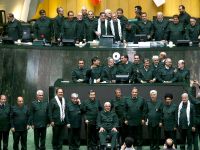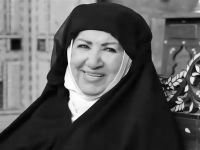Virtual organisations (VOs) have a future in Oman but work best with licensed companies on the ground, explained experts at the Digital Nation Summit held in Muscat, on Monday.
Virtual organisations are groups of individuals or individual companies who are connected online and collaborate for efficient business, and while they are gaining popularity in the Sultanate, the legal and financial frameworks to support them still need to be examined, said speakers at the summit, which was hosted by the Knowledge Oasis Muscat.
"The market allows us to pick any partner in the world and get benefits," said Anna Stalinska, business professor at the Middle East College of Information Technology, explaining why VOs are good for Oman's economy. Stalinska said VOs function well because the members are cooperating and aren't forced into anything by legal barriers. They operate on mutual interests.
Yet for members of VOs to do business in Oman, it's easier to have a licensed company on the ground, explained two representatives of Bank Muscat. "We can talk about VOs but at the end of the day there needs to be a link on the ground," said Majid Al Toki. He said for banking purposes, a legal entity provides more protection for investors. He says contracts must be written to protect investors and limit risks associated with VOs. Improving efficiency "When you're actually trying to finance a contract, someone has to take the actual responsibility," added Abdul Nasser Al Raisi, head of credit and marketing for small and medium enterprises at Bank Muscat.
VOs allow companies and individuals from around the world to trade and team up to make their business more efficient and reach out to more customers, often cutting out the middlemen. But the question about how banks can support them is a tricky one. Moosa Abdullah Al Farei, chairman of Al Sabla Digital Solutions, an Omani company which began as a VO, said it's important to develop trust with the banks.
Al Farei started Sabla Oman as an online forum for Omanis to discuss social and political issues, but it grew into much more. It's model of a VO that has succeed. "After five years we have an e-market and an electronic newspaper with top Omani writers," Al Farei said. "We have 170,000 active users and our website get 250,000 visitors each day." As Sabla Oman grew in popularity, Bank Muscat and Omantel both bought advertising space on the website, Al Farei said. "We built trust with big companies, Bank Muscat and Omantel. We have good relations with them," he added.
Al Farei eventually registered Sabla Oman as a real company that sells computer applications, does internet designs and provides IT solutions. Because of the relationship with Bank Muscat, he was able to easily transition from a VO to a licensed company with the bank's support. But Al Farei admits there's an absence of knowledge of how to deal with VOs. Stalinska said Oman is in a position that could support VOs because it cooperates well when it comes to international trade. and has a strong legal basis to support them. There aren't many barriers to developing VOs, she said. "The supply chain is there but it needs time to develop," Stalinska said. "VOs will invite more foreign companies to invest in Oman."








